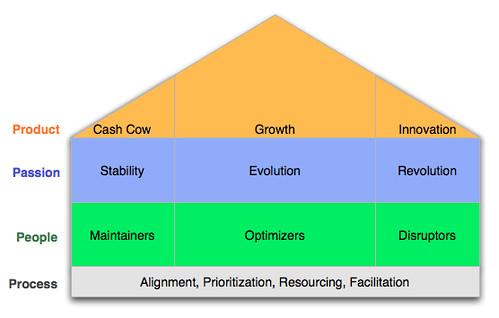In the vast expanse of our solar system, a hidden network of information thrives – the planetary data ecosystem. Like celestial storytellers, planets, moons, and asteroids store a wealth of knowledge waiting to be unlocked. Join us on a journey through this cosmic digital landscape, where data stars align to illuminate the mysteries of the universe. Welcome to the planetary data ecosystem, where discovery knows no bounds.
Table of Contents
- Exploring the Intricacies of the Planetary Data Ecosystem
- Leveraging Data Partnerships for Enhanced Insights
- Ensuring Data Security and Ethical Use in Planetary Research
- Optimizing Data Integration for Seamless Collaboration
- Q&A
- Insights and Conclusions

Exploring the Intricacies of the Planetary Data Ecosystem
Within the realm of planetary data ecosystem, there exists a fascinating web of interconnected information, observations, and insights that shape our understanding of celestial bodies. From the vast expanses of outer space to the intricate details of planetary surfaces, this ecosystem sheds light on the mysteries of the universe in ways that continually inspire exploration and discovery.
From satellite imagery capturing the dynamic landscapes of Mars to seismic data unraveling the depths of Earth’s core, the planetary data ecosystem serves as a treasure trove of knowledge waiting to be unlocked. Scientists, researchers, and space enthusiasts alike delve into this rich tapestry of information, piecing together the puzzle of our cosmic surroundings one data point at a time.
Leveraging Data Partnerships for Enhanced Insights
With the vast expanse of data available in the planetary data ecosystem, the potential for deriving insights and driving innovation has never been greater. Leveraging data partnerships can unlock a world of possibilities, enabling organizations to access diverse datasets and collaborate with experts across various fields. By pooling resources and sharing knowledge, these partnerships can lead to enhanced insights that go beyond conventional boundaries.
Through strategic collaborations, organizations can tap into specialized expertise and unique data sources, gaining a deeper understanding of trends, patterns, and anomalies within the data. This collaborative approach not only allows for a more comprehensive analysis but also fosters a culture of continuous learning and growth. By harnessing the power of data partnerships, businesses can stay ahead of the curve, drive informed decision-making, and uncover hidden opportunities within the planetary data ecosystem.

Ensuring Data Security and Ethical Use in Planetary Research
Exploring the vast unknowns of the universe to uncover its mysteries requires a harmonious blend of cutting-edge technology and ethical considerations. In the planetary data ecosystem, ensuring the security and ethical use of data is paramount to uphold the integrity of research endeavors. Researchers, scientists, and organizations involved in planetary research must adhere to stringent data security protocols to safeguard sensitive information and prevent unauthorized access.
Embracing a culture of transparency and accountability is essential to foster trust and collaboration within the planetary research community. By promoting ethical data practices and emphasizing the responsible use of information, researchers can advance knowledge while upholding moral principles. Through collaborative efforts and a shared commitment to data security, the planetary data ecosystem can thrive and propel scientific discoveries to new heights.

Optimizing Data Integration for Seamless Collaboration
In the realm of data integration, the key to fostering seamless collaboration lies in establishing interconnected systems that enable the exchange of information with fluidity and precision. By optimizing data integration processes, organizations can transcend traditional boundaries and unlock new opportunities for innovation and growth.
Imagine a world where data flows effortlessly across platforms and departments, fueling creativity and driving productivity. This vision of a harmonious planetary data ecosystem is within reach through strategic planning, implementation of cutting-edge technologies, and a commitment to agility and adaptability.
Q&A
**Q&A: Exploring the Infinitely Fascinating Planetary Data Ecosystem**
Q: What exactly is a planetary data ecosystem?
A: A planetary data ecosystem refers to the interconnected network of data sources, repositories, and analytical tools that allow researchers to study various aspects of planets within our solar system and beyond. It encompasses a vast array of data related to planetary geology, atmospheres, climates, and more.
Q: How does the planetary data ecosystem help in understanding the mysteries of our universe?
A: By providing researchers with a wealth of data from different planets, moons, and celestial bodies, the planetary data ecosystem enables scientists to uncover patterns, trends, and anomalies that contribute to a deeper understanding of planetary processes, formation, and evolution. It helps answer fundamental questions about the origins of our solar system and the potential for life beyond Earth.
Q: What are some key sources of data within the planetary data ecosystem?
A: The planetary data ecosystem draws data from a variety of sources including spacecraft missions, telescopic observations, ground-based experiments, simulations, and laboratory analyses. Data repositories managed by space agencies, research institutions, and international collaborations play a crucial role in collecting, curating, and disseminating this valuable information.
Q: How is data quality ensured within the planetary data ecosystem?
A: Data quality within the planetary data ecosystem is maintained through rigorous validation processes, metadata standards, peer review mechanisms, and data sharing protocols. Scientists adhere to best practices in data management to ensure accuracy, reliability, and interoperability of datasets, enhancing the overall integrity of research findings.
Q: What role does artificial intelligence play in analyzing planetary data within the ecosystem?
A: Artificial intelligence is increasingly utilized to harness the vast amounts of data generated within the planetary data ecosystem. Machine learning algorithms help in pattern recognition, data mining, image processing, and predictive modeling, enabling scientists to make sense of complex datasets and derive valuable insights that would be challenging to obtain through traditional methods.
Insights and Conclusions
As we delve deeper into the intricate web of the planetary data ecosystem, it becomes apparent that the possibilities for exploration and discovery are endless. The interconnectedness of data from various celestial bodies not only fuels scientific endeavors but also ignites our curiosity about the vast unknowns of the universe. As we continue to unlock the mysteries of the cosmos through data, let us embrace the ever-evolving nature of our understanding and celebrate the collaborative spirit that propels us further into the cosmos. Join us on this cosmic journey as we decode the secrets of the universe, one data point at a time. Goodbye for now, fellow cosmic explorers.



0 Comments